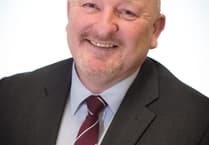ONE of the debates about the future of local government concerns electoral systems and the way in which we elect councillors. It’s a debate the Welsh Government has initiated by giving local authorities the power to change the way they elect their councillors from first past the post to the single transferable vote in time for the next local elections in 2027.
The single transferable vote is an electoral system where instead of voting for one candidate in your local area, much larger geographical wards are created electing perhaps three, four, five or even six councillors and voters rank the candidates in order of preference.
These are then added up to determine which candidates are elected but lower preference votes count, so someone could still be elected despite being no one’s first or even second choice. This would be a major departure from First Past The Post, which is the system we currently use to elect our councillors as well as our MPs.
STV would end the link between a community and their local councillor because everyone would have multiple councillors, probably from a wide range of different political parties, some of whom may find it difficult to work together.
While it might help smaller fringe parties, it would make it more difficult for independents to break through and would make it virtually impossible for any party to ever win a majority.
While you can get successful coalitions, they can also be a risk unless they are well-led, cohesive and share a clear purpose. Making it less likely that councils could have strong leadership seems a strange thing to do if you want competent and accountable decision-making.
There are so many challenges facing local authorities right now, particularly with tight budgets and the pressures around cost of living,
I think tinkering with electoral systems is hardly a priority right now. But it is a debate that some councils may decide to engage in. I hope in Monmouthshire we can avoid wasting time on distractions like this.
To change the electoral system, two thirds of all councillors must support it. Monmouthshire’s Conservative group makes up around 40 per cent of all councillors and we are opposed to any such changes.
There are also opponents in the Independent and Labour groups. This makes it virtually impossible for any bid to change the electoral system to be successful, which begs the questions, what’s the point?
If there’s no way the change can be achieved, advocates should forget it and concentrate on things we can achieve to support residents through difficult times.





Comments
This article has no comments yet. Be the first to leave a comment.